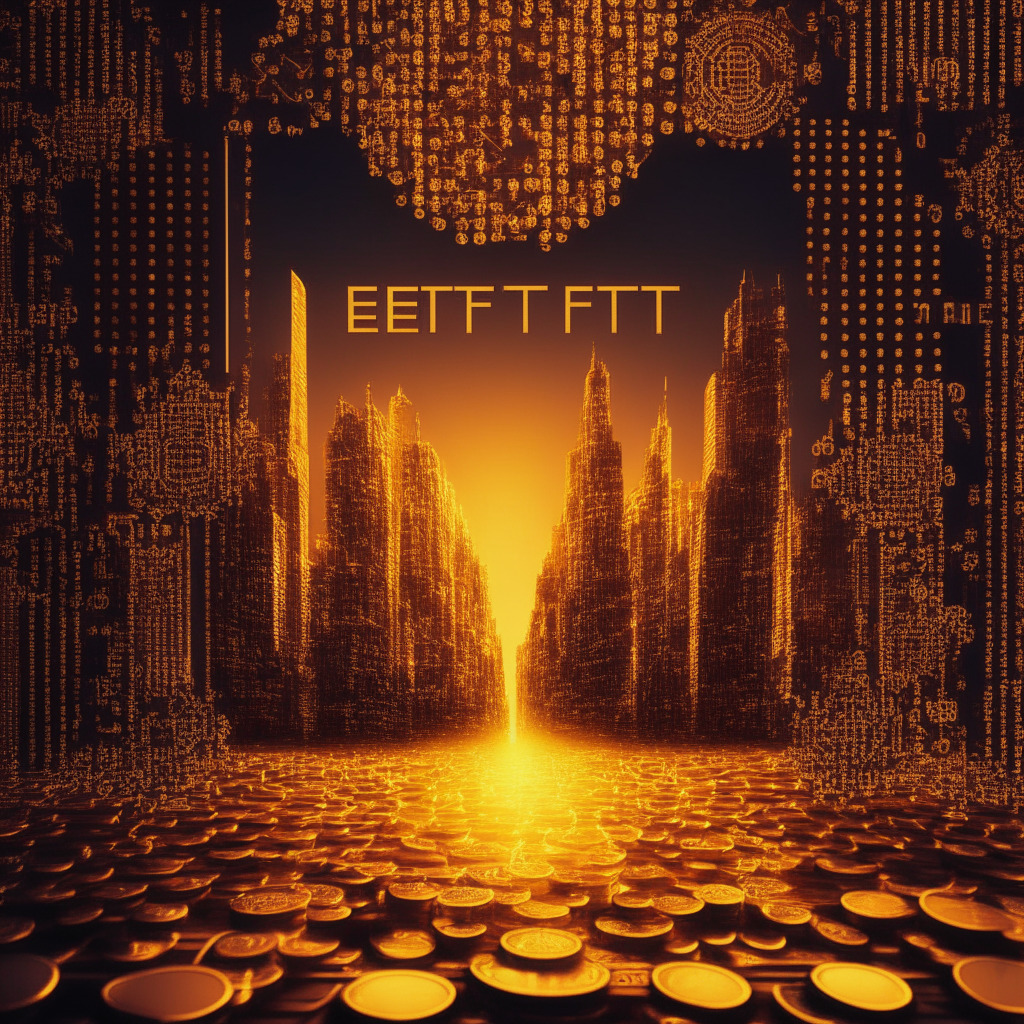Investment firms Invesco and WisdomTree are making renewed attempts to secure approval for launching spot Bitcoin exchange-traded funds (ETFs) following initial rejections. This comes just days after the world’s largest asset manager BlackRock made its own bid to launch such a fund. Invesco argues that the lack of a spot Bitcoin ETF puts US investors at considerable risk, as they may resort to utilizing unreliable digital asset accounts. Many investors have turned to platforms such as FTX, Celsius, BlockFi, and Voyager for exposure to cryptocurrencies.
Invesco believes that the availability of a spot Bitcoin ETP could have resulted in billions of dollars remaining invested in a regulated and well-understood structure, rather than being tied up in proceedings. Invesco is pursuing approval to list the “Invesco Galaxy Bitcoin ETF” on the Cboe BZX exchange, and WisdomTree is seeking to list the “WisdomTree Bitcoin Trust” on the same platform.
WisdomTree is confident in the maturing Bitcoin market, stating that it operates at a level of efficiency and scale similar in material respects to established global equity, fixed income, and commodity markets. The launch of new applications coincides with heightened scrutiny by US regulators regarding potential violations of securities laws within the crypto industry.
Despite these setbacks, a futures-based Bitcoin ETF is already approved in the US, primarily due to its reliance on futures contracts traded on the regulated Chicago Mercantile Exchange. The approval of these products indicates progress and growing acceptance of Bitcoin-related investment products. However, each type of ETF is subject to its own set of regulatory considerations.
The difference between a futures-based ETF and a spot Bitcoin ETF lies in their underlying assets. A futures-based ETF derives its value from futures contracts, while a spot Bitcoin ETF directly holds and tracks the price of physical Bitcoin in the spot market.
Recently, Bitwise also submitted a filing for a spot Bitcoin ETF, following BlackRock’s filing which signaled the start of the mainstream era for crypto. Other potential issuers like VanEck, Valkyrie, WisdomTree, Global X, and Invesco might follow suit. Observers predict that even more players will now jump into the spot Bitcoin ETF race.
Meanwhile, the Grayscale Bitcoin Trust (GBTC) remains the largest Bitcoin exchange-traded product, with 635,236 BTC ($18.4 billion) under management. Unlike the recently proposed spot ETFs, Bitcoin locked in GBTC is non-redeemable. GBTC’s closed-ended structure has led to a steep discount on its shares compared to its net asset value, at times around 50%. Nonetheless, recent ETF applications from Wall Street heavyweights have helped repair the GBTC discount somewhat, now at 33% compared to 42% in early June.
Source: Blockworks




